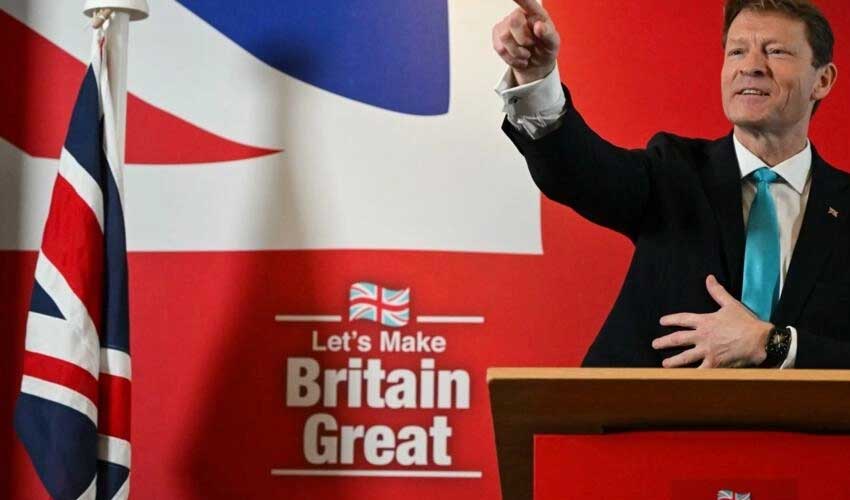A fringe right-wing political party, originally founded by eurosceptic populist Nigel Farage and now known as Reform UK, is causing concerns for the ruling Conservatives ahead of this year's general election in Britain.
The party, previously called the Brexit Party, is currently led by Richard Tice, a supporter of former US President Donald Trump. Reform UK opposes immigration, net-zero energy policies, and what it perceives as "nanny state" government regulations.
With slogans like "Let's make Britain great" and "Let's save Britain," Reform UK aims to tap into the dissatisfaction among Britons grappling with the worst cost-of-living crisis in decades. Polling at around 10 percent in national surveys, the party poses a potential threat to Prime Minister Rishi Sunak's bid for a fifth consecutive term by splitting the right-wing vote in crucial constituencies.
Amid double-digit leads for the centre-left opposition Labour Party in most polls, concerns among Conservative lawmakers are justified.
Leader Richard Tice ruled out electoral pacts with the Conservatives, asserting that the Tories are "terrified." Tice confirmed that Reform would field candidates in every seat across Scotland, England, and Wales, unlike the 2019 election when the Brexit Party withdrew candidates in some areas to support Boris Johnson.
Tice criticised the Tories for high taxes, "wasteful" government spending, sluggish economic growth, and perceived failures following the UK's exit from the EU.
He pledged a "one-in, one-out" immigration policy, the removal of "daft" EU regulations, adjustments to the income tax threshold, and abandoning the commitment to reach net-zero carbon emissions by 2050.
While Tice also criticised Labour leader Keir Starmer, political experts suggest that the Tories stand to lose the most from Reform's appeal to disaffected voters, particularly in working-class "Red Wall" seats in northern England.
While Reform is not expected to win parliamentary seats under the first-past-the-post system, a substantial share of votes could undermine Conservative hopes for re-election.
The Tories, facing pressure from more extreme factions in recent years, risk alienating socially liberal voters in the south by pandering to Reform's platform.
The delicate balance between holding on to different voter groups poses a significant challenge for the Conservatives.
While there is limited electoral evidence supporting Reform's current polling numbers, the party's influence could rise, especially if Nigel Farage returns to active politics, bringing his charisma and campaigning experience.



























